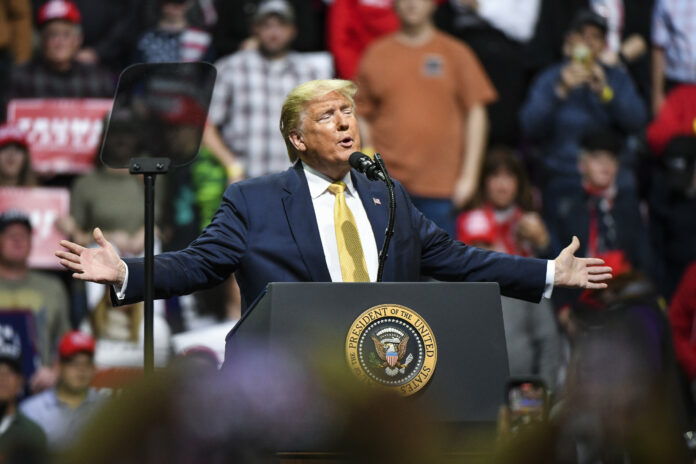A judge’s ruling that Donald Trump engaged in insurrection against the U.S is a “deadly serious” problem for the former president, a law professor has told Newsweek.
Appeals by both sides of a Trump ballot dispute are to go before the Colorado Supreme Court for oral arguments on Wednesday. The former president is appealing Judge Sarah Wallace’s insurrectionist ruling, while his opponents are appealing Wallace’s decision to keep Trump on the Colorado ballot for the 2024 presidential election.
The Colorado case, which was taken by a group of voters assisted by Citizens for Responsibility and Ethics in Washington, is viewed as a test case for a wider Trump disqualification campaign in other states. The former president denies any wrongdoing and has repeatedly said that the investigation is part of a wider political witch hunt. Newsweek has emailed Trump’s attorney John Lauro for comment on Tuesday.
The plaintiffs say that Trump is ineligible to be a candidate in the next presidential election because his role in the January 6, 2021 attack on the U.S. Capitol disqualifies him under a clause in the U.S. Constitution’s 14th Amendment. This prohibits any person who “engaged in insurrection or rebellion” from running for federal office.
On November 17, Wallace found that, as president, Trump was not “an officer of the United States” as defined by the 14th Amendment and could therefore could not be disqualified. However, the judge concluded Trump’s “conduct and words were the factual cause of, and a substantial contributing factor” to the attack on the Capitol. Wallace found that Trump “engaged in an insurrection on Jan. 6, 2021 through incitement.”
Michael Ciaglo/Getty Images
Andrea Katz, a law professor at Washington University in St. Louis, Missouri, told Newsweek that Wallace’s insurrectionist ruling is “deadly serious” for Trump, as it leaves a judicial record for any other court, such as the Colorado Supreme Court.
Those courts could then say that Trump’s witnesses are irrelevant to the insurrectionist finding, Katz said, adding that she was surprised by Wallace’s “president is not an officer” conclusion.
Historically, Congress referred to the president as an “officer” during the debates over the 14th Amendment, and the whole point of the insurrection clause was ” to prevent Confederate rebels from holding federal office”, Katz added.
She also said the U.S. Supreme Court recently held in Lucia vs. SEC that a federal officer is one who holds a “continuing” position established by law, and who “exercises significant authority pursuant to the laws of the United States.”
Peter Shane, New York University constitutional law professor, told Newsweek that it’s not unusual for cases to be “incomplete wins or losses for both sides.”
“The odd thing about the lower court opinion is that Trump ‘won’ on the easier issue for the plaintiffs. The argument that the president should not be deemed an officer of the United States makes no sense,” Shane said.
“Where you might expect a court to hesitate would be in the determination whether Trump’s acts counted as engaging in insurrection against the Constitution. I think the lower court was correct, and its findings of fact will be hard to overturn.”
However, Shane said “the political implications of keeping Trump off the ballot are so daunting.”
More than a dozen attorneys general from Republican-controlled states have filed briefs in the case.
A group of 19 Republican-leaning states, led by Indiana Attorney General Todd Rokita, urged the court to follow the example of other states, including Minnesota and Michigan, and reject the plaintiffs’ arguments.
“The 14th Amendment entrusts Insurrection Clause questions to Congress—not state officials or state courts,” state online news outline Colorado Newsline quotes his November 29 brief as stating. “Allowing each state and its courts to determine eligibility using malleable standards would create an unworkable patchwork of eligibility requirements for President,” Rokita wrote.
Uncommon Knowledge
Newsweek is committed to challenging conventional wisdom and finding connections in the search for common ground.
Newsweek is committed to challenging conventional wisdom and finding connections in the search for common ground.


